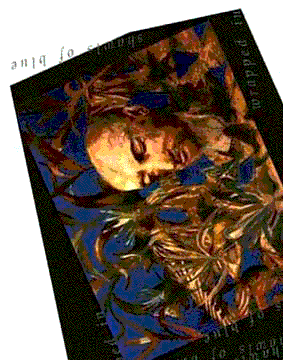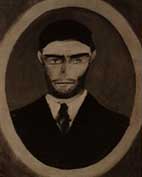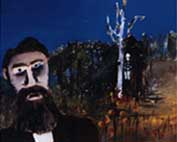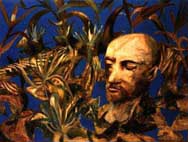|
about [or you may like to view the site map] I began writing poetry about the notion of being 'unhelmeted' after I read an article by an academic regarding the paintings of Sidney Nolan. The writer suggested that "Nolan's Ned Kelly" is never seen outside his helmet. I knew I'd seen the face of Ned Kelly in Nolan's work. But the disembodied Kellys were so tantalising. I started writing poetry about these amazingly evocative images – both the strange men I'd seen floating out of Nolan's paintings and the empty helmets. I find the 4 Kelly faces I've found (I'm sure there are more) all the more tantalising because there are so many instances of Nolan's Helmeted Kellys. Patrick White's writing often
intersects with Nolan's oeuvre. White said that he'd only ever visited
the Australian outback via Nolan's canvases. But there are other more
bizarre intertexts available to those who know how to read across
and through These images are reproduced for the purposes of criticism and review only. Please note that any further reproduction of these images without permission is a violation of copyright. |



